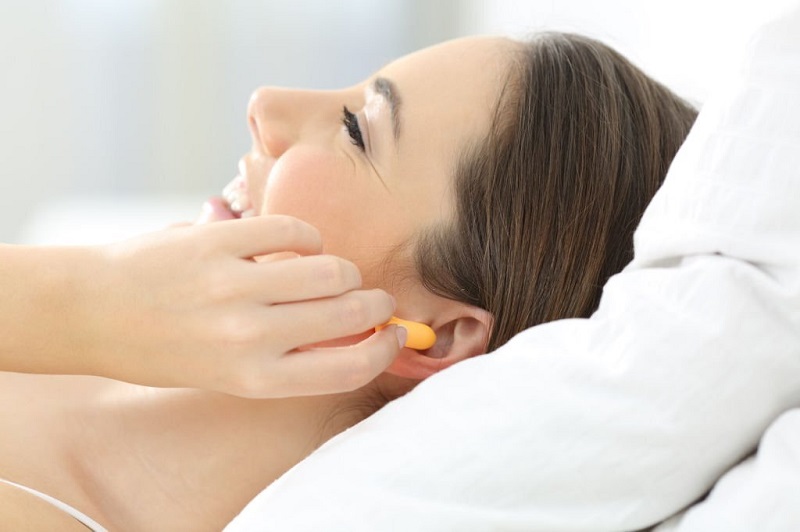Tinnitus, often described as a persistent ringing or buzzing in the ears, affects millions of people around the world. While there is no cure for this condition, there are numerous innovative treatment solutions that leverage technology to help manage the symptoms and improve the quality of life for tinnitus sufferers. In this article, we will explore how technology is being used to provide relief and support for those living with tinnitus.
Table of Contents
Understanding Tinnitus: The Unwanted Symphony
Before delving into innovative treatment solutions, it’s essential to understand what tinnitus is and how it can impact individuals. Tinnitus is not a disease but a symptom of an underlying condition, such as age-related hearing loss, exposure to loud noise, earwax blockages, or even stress. The persistent sound perception in the absence of external noise can be distressing and disruptive, affecting one’s daily life, concentration, and sleep patterns.
Traditional treatments often involve counseling, sound therapy, and cognitive-behavioral therapy (CBT). However, technology has opened up a world of possibilities for tinnitus management, offering new hope to those who suffer from this condition.
1. Sound Masking Devices: Finding Peace in White Noise
One of the most common and effective technological solutions for tinnitus is sound masking. Sound masking devices, including white noise machines and smartphone apps, generate soothing sounds that can help divert your attention from the constant ringing. These devices provide customizable options, allowing users to choose from a range of sounds, such as ocean waves, rain, or soft music, to mask the tinnitus noise effectively.
The portability of these devices means that tinnitus sufferers can have relief wherever they go, whether it’s at home, work, or during travel. By creating a more pleasant auditory environment, these technologies provide a reprieve from the relentless ringing.
2. Hearing Aids: Dual Functionality for Tinnitus and Hearing Loss
Many individuals with tinnitus also experience hearing loss, making hearing aids a dual-purpose solution. Modern hearing aids are equipped with advanced technology, including tinnitus management features. These devices can amplify external sounds while simultaneously providing relief from tinnitus.
Some hearing aids offer a customizable tinnitus sound therapy feature, allowing users to adjust the volume and pitch of the background sound to better suit their needs. This tailored approach can significantly reduce the perception of tinnitus and improve the overall hearing experience.
3. Neuromodulation Devices: Retraining the Brain
Neuromodulation is an innovative approach to tinnitus treatment that directly targets the brain’s auditory processing center. Devices like the Neuromonics Oasis and the Lenire system use neuromodulation to retrain the brain’s response to tinnitus sounds. These devices work by delivering precisely calibrated audio signals to disrupt the brain’s abnormal neural activity associated with tinnitus.
Over time, the brain adapts to these signals, reducing the perception of tinnitus. This approach aims not only to provide short-term relief but also to create lasting changes in the way the brain processes tinnitus-related signals.
4. Smartphone Apps: Pocket-Sized Tinnitus Management
Smartphone apps have become an increasingly popular tool for tinnitus management. These apps offer a wide range of features, including sound therapy, relaxation exercises, and habituation exercises that can help users cope with their tinnitus symptoms. With regular use, these apps can contribute to better overall well-being.
Moreover, many tinnitus apps provide data tracking, enabling users to monitor the intensity and frequency of their tinnitus over time. This data can be shared with healthcare providers, allowing for more personalized treatment plans.
5. Internet-Based Therapies: Remote Support
The Internet has facilitated remote tinnitus support through various online programs and telehealth services. Tinnitus sufferers can access expert advice and counseling from the comfort of their homes. This approach not only makes treatment more accessible but also reduces the stigma often associated with seeking help for tinnitus.
6. Cochlear Implants: An Option for Severe Cases
For individuals with severe tinnitus associated with profound hearing loss, cochlear implants can be a viable option. Cochlear implants are surgically implanted devices that bypass damaged parts of the inner ear to directly stimulate the auditory nerve. This can not only improve hearing but also provide relief from tinnitus, particularly when other treatment options have proven ineffective.
The Road to Relief: Personalized Solutions
The right tinnitus treatment varies from person to person, as the condition’s causes and manifestations can differ significantly. What works for one individual may not be as effective for another. Therefore, a personalized approach to treatment is crucial. Healthcare providers, including audiologists and otolaryngologists, can help individuals explore these innovative technological solutions and determine the best treatment plan for their needs.
It’s important to note that while technology has opened doors to innovative treatment solutions, it’s not a one-size-fits-all approach. The effectiveness of these treatments can depend on various factors, including the individual’s tinnitus severity, its underlying causes, and their willingness to commit to treatment strategies.
Conclusion: A World of Possibilities
Tinnitus can be a challenging and persistent condition, but innovative technology has expanded the realm of tinnitus treatment options. From sound masking devices to neuromodulation therapies, there are numerous ways for individuals to find relief and reclaim their lives from the unwanted symphony in their ears. By working with healthcare professionals and exploring these innovative solutions, those with tinnitus can embark on a journey towards improved well-being and a quieter, more peaceful future.

